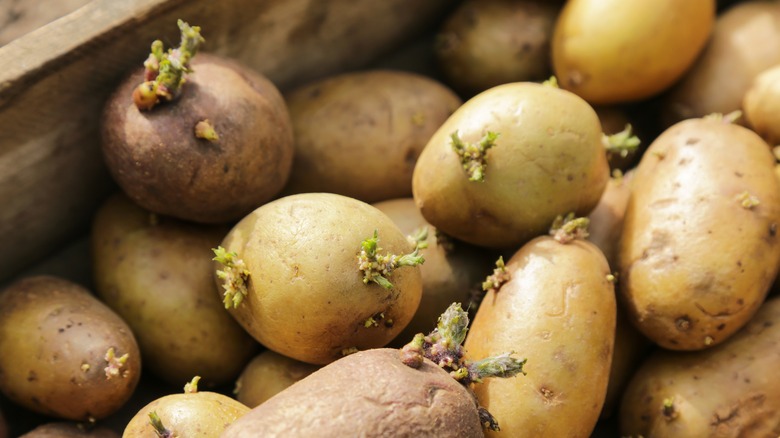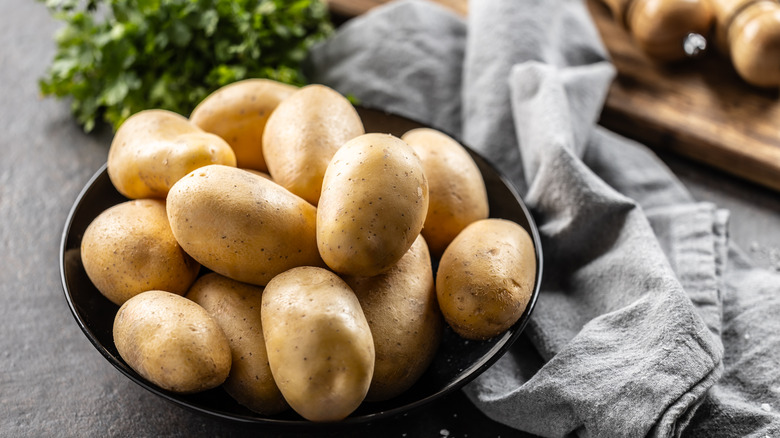Don't Be Scared Of Eyes On Your Potatoes, They're Totally Harmless
If you see your spuds beginning to sprout, don't throw them out just yet. More often than not, these potatoes are perfectly safe to eat with some minor preening. Sprouting will naturally occur to any potato that is stored for too long. They are packed with nutrients, and if the conditions around them are warm and bright enough, they will continue to grow.
The primary concern with potatoes is an excess of glycoalkaloids, specifically chaconine and solanine. The effects of these compounds in potatoes have been closely studied for decades, and the bottom line is that in small amounts, they are perfectly safe to consume, but large amounts can pose health risks to humans. Potato eyes and green patches signify areas where these compounds are more concentrated, and thus it is recommended across the board to remove these with a knife or peeler.
There is more debate as to whether the rest of the potato is still safe to eat, though. Some sources maintain that so long as the rest of the potato looks normal and feels sturdy, there's nothing to worry about. Other sources are more cautious and suggest throwing out the spud entirely. Ultimately, the consensus leans towards eating the potato, but keep your wits about you when you judge the quality.
Tips to avoid sprouting
The first preventative measure to take in order to avoid potatoes sprouting is to simply buy fewer of them. Overstocking your pantry is the primary problem — sometimes, you just can't eat so many potatoes in a short span of time, no matter how many easy and delicious baked potato recipes there may be. If you already have too many and are worried about them going bad, a good tip is to boil and freeze them for eating later.
Secondly, make sure your conditions are conducive to maintaining freshness. Potatoes need to be kept in a dark place at room temperature. Keeping them in brown paper bags will help, too, allowing for proper ventilation and preventing moisture buildup. It's not ideal to keep them in the refrigerator, though, as the cold can harden the potatoes and cause potentially dangerous alterations in their chemistry.
Even with dozens of potato types, their maintenance is uniform, so once you get used to storing your spuds correctly, you'll be whipping up smashed potatoes like Martha Stewart in no time.


